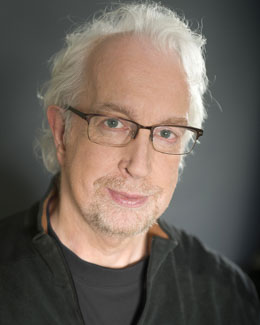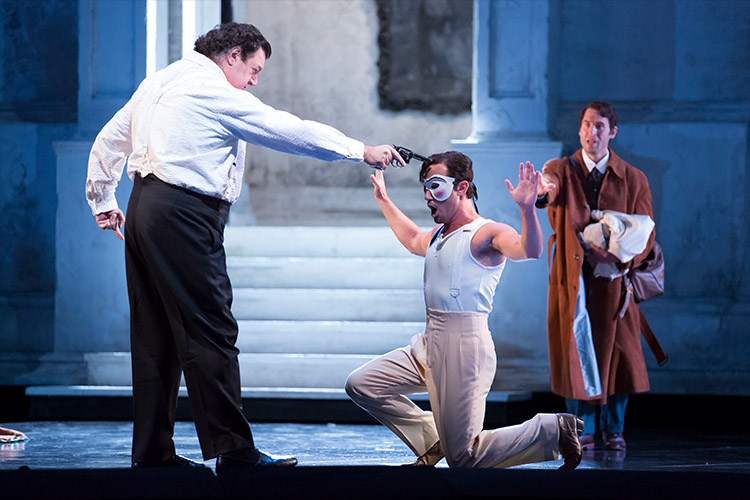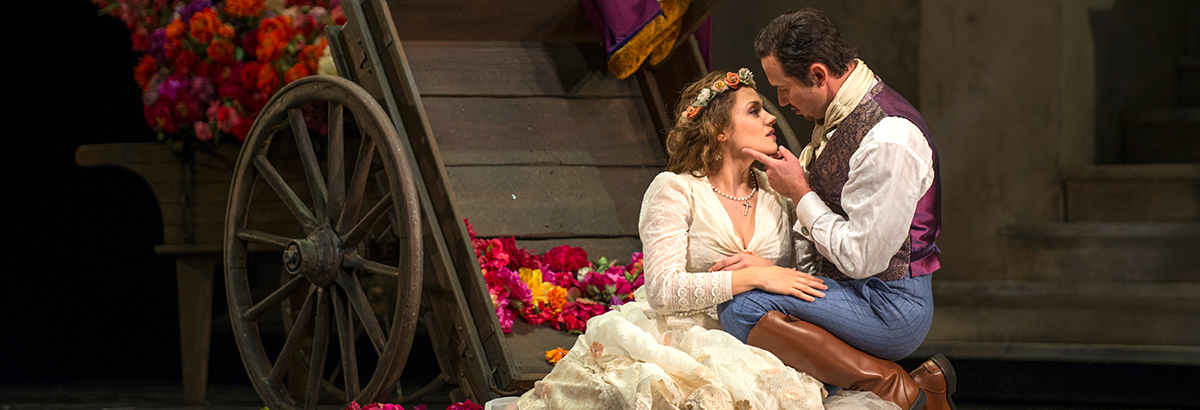October 28, 2019
Director's note: Robert Falls on DON GIOVANNI
By Robert Falls
Mozart and Da Ponte called Don Giovanni a dramma giocoso (“humorous drama”). Although it opens with murder and concludes with Giovanni going to hell, in between it’s what we know today as “black comedy.” It’s funny and yet not funny; there are extreme tonal shifts between broad comedy, clever wit, and very disturbing behavior on everyone’s part, while at its most serious, the opera delves deeply into human nature.

Robert Falls, Director
Our world has changed a great deal in the five years since this production premiered. If anything, however, the work has become even more relevant to our time. Soon after the opera begins we witness a crowd reacting with awe at the arrival of a superstar in their midst, as often happens today. Giovanni isn’t a rake, cad, or libertine (to use the usual archaic descriptions). He’s a charming monster, as are the figures of power, privilege, wealth, and charm, who populate recent headlines.
We know that, in opera and theater, audiences love monsters. Richard III and other great monsters of the repertoire entertain them. But the charm, attractiveness, and considerable power of Giovanni can backfire. Through the lens of the #MeToo movement, any production of Don Giovanni gains a new immediacy. Phrases like “powerful man,” “amoral,” “narcissistic,” “sex addict,” “leaving a trail of assaults behind him” trigger us like never before, and yet, that’s the opera, folks.

Leporello (Kyle Ketelsen) observes as the Commendatore (Andrea Silvestrelli) threatens Don Giovanni (Mariusz Kwiecien), in Robert Falls’s production at Lyric, 2014|15 season.
The women in this production have spines. They have agency. They’re not just vessels for Giovanni’s lechery. I have not changed anything in the production to fit recent news cycles. I didn’t need to because Mozart was ahead of his time – an enlightened genius who created three incredibly complex women. They are prepared to stand up against their aggressor, and they do – and that’s the essence of how I see Don Giovanni. There are many instances in other plays and operas of jealous women going after each other, pulling out each other’s hair over a man. However, these three women recognize the abuse that each has suffered at Giovanni’s hands. It’s all there in the text and in the music. Mozart and Da Ponte knew what they were doing.
In Leporello’s “catalogue aria,” he talks about Giovanni’s favorite conquests being the young ones (and the younger the better). In that moment, he’s aware of his own guilt. He has acted, in essence, as a pimp, finding the youngest of girls for Giovanni. In many ways Leporello is the opera’s most complex character. He’s clearly along for the ride, scooping up as much sex, drugs, and rock-and-roll as he can. He knows he’s complicit and yet, he feels trapped in this world, too weak to break out of his debauched lifestyle.
Don Giovanni poses dozens of challenges for directors to resolve in imaginative ways that will fully engage the audience. One such question comes before the opera even begins: What happened in Donna Anna’s bedroom? Was it consensual? Rape? Some sort of abuse? And then, thinking about everything that follows, how much of the story Anna tells Don Ottavio about that night is truthful? It’s clear to me that she was the victim of sexual assault. But when Donna Anna describes the attack, Ottavio can’t believe that such an upstanding member of the community as Giovanni is capable of such vile behavior. Moreover, within that scene, Da Ponte and Mozart have Anna say, “Who is going to believe me against him?” It’s the question at the crux of the #MeToo movement.
So, it’s all there – Mozart and Da Ponte’s brilliance in exploring the harsh complexities of power, privilege, violence, and sexual abuse. These dark themes run through all of Mozart’s work. For a modern director, they are impossible to ignore, and with this production, I openly explore them.
